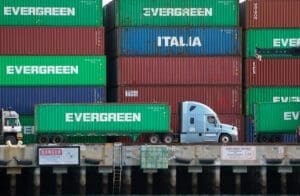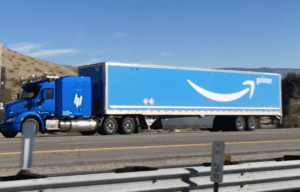 Today is the first day of the Lunar New Year. In case you are not totally familiar, here’s a quick breakdown. The Lunar New Year, which is also called Spring Festival, marks the first full moon of the lunar calendar and generally takes place between January 21 and February 20. The dates of the New Year change every year on the Gregorian calendar. There are many traditions that are associated with the Lunar new Year. As a family-oriented holiday, the big one is to travel to be with family. But, as usual, the Covid pandemic is making things different once again. This year, the Chinese government has urged families to limit “nonessential” trips to prevent the spread of Covid-19. Similarly, in the United States, government officials continue to ask people to practice social distancing and to restrict travel. Instead, families are encouraged to enjoy virtual reunions, or in some cases, to have socially distant get-togethers in an outdoor space. For those of us in Massachusetts, with the polar vortex bringing below freezing temperatures, this last part is rather difficult. Even as things are more difficult, we wish everyone celebrating the year of the ox a happy Lunar New Year. And now on to this week’s logistics news.
Today is the first day of the Lunar New Year. In case you are not totally familiar, here’s a quick breakdown. The Lunar New Year, which is also called Spring Festival, marks the first full moon of the lunar calendar and generally takes place between January 21 and February 20. The dates of the New Year change every year on the Gregorian calendar. There are many traditions that are associated with the Lunar new Year. As a family-oriented holiday, the big one is to travel to be with family. But, as usual, the Covid pandemic is making things different once again. This year, the Chinese government has urged families to limit “nonessential” trips to prevent the spread of Covid-19. Similarly, in the United States, government officials continue to ask people to practice social distancing and to restrict travel. Instead, families are encouraged to enjoy virtual reunions, or in some cases, to have socially distant get-togethers in an outdoor space. For those of us in Massachusetts, with the polar vortex bringing below freezing temperatures, this last part is rather difficult. Even as things are more difficult, we wish everyone celebrating the year of the ox a happy Lunar New Year. And now on to this week’s logistics news.
- Uber to offer free rides to Walgreens for Covid vaccines
- Retail imports expected to hit repeated monthly records after record year in 2020
- Peloton will incur 10 times its usual transportation costs
- Amazon orders hundreds of trucks that run on natural gas
- Walmart steps up reusable plastic container packaging for fresh produce
- British meat processors set up shop in EU as Brexit hammers exports
- Warehouse hiring data shows how supply chains flexed up for peak
- US Postal Service swings to a profit as revenue rises
 In December, Uber made a pledge to offer 10 million free or discounted rides to make sure that a lack of transportation did not stop people from getting the Covid vaccine. Earlier this week, the company announced a partnership with Walgreens to make good on that pledge. Under the partnership, Uber will offer free rides to Walgreens stores and clinics for those who book an appointment, do not have transportation, and live in underserved communities. To help identify who those people in need are, Uber is working with charitable partners including the National Urban League. The program could roll out as early as next week, with pilot programs in Chicago, Atlanta, Houston, and El Paso, TX. Walgreens will also take on an expanded role in the vaccine rollout, with plans to receive direct shipments of vaccines in 15 states.
In December, Uber made a pledge to offer 10 million free or discounted rides to make sure that a lack of transportation did not stop people from getting the Covid vaccine. Earlier this week, the company announced a partnership with Walgreens to make good on that pledge. Under the partnership, Uber will offer free rides to Walgreens stores and clinics for those who book an appointment, do not have transportation, and live in underserved communities. To help identify who those people in need are, Uber is working with charitable partners including the National Urban League. The program could roll out as early as next week, with pilot programs in Chicago, Atlanta, Houston, and El Paso, TX. Walgreens will also take on an expanded role in the vaccine rollout, with plans to receive direct shipments of vaccines in 15 states.
 The 2020 holiday season in November and December hit a sales record, with spending surpassing $789 billion. This was an increase of 8.3 percent over the same time last year, and preliminary reports put the yearly total at an increase of 6.8 percent. A big part of the holiday season was the flurry of activity at the nation’s busiest ports. And according to the monthly Global Port Tracker report released today by the National Retail Federation (NRF) and Hackett Associates, we can expect big import numbers to continue in 2021. The report indicates that imports at the nation’s largest retail container ports are expected to set new monthly records from now into the summer as the nation’s economy continues to recover from the pandemic. January’s imports are projected to be an increase of over 14 percent over 2020. And while February is historically the slowest month of the year, port congestion has ships still waiting to unload, which should drive those numbers up.
The 2020 holiday season in November and December hit a sales record, with spending surpassing $789 billion. This was an increase of 8.3 percent over the same time last year, and preliminary reports put the yearly total at an increase of 6.8 percent. A big part of the holiday season was the flurry of activity at the nation’s busiest ports. And according to the monthly Global Port Tracker report released today by the National Retail Federation (NRF) and Hackett Associates, we can expect big import numbers to continue in 2021. The report indicates that imports at the nation’s largest retail container ports are expected to set new monthly records from now into the summer as the nation’s economy continues to recover from the pandemic. January’s imports are projected to be an increase of over 14 percent over 2020. And while February is historically the slowest month of the year, port congestion has ships still waiting to unload, which should drive those numbers up.
 A couple of weeks ago, I wrote about the pandemic’s impact on shipping times for Peloton. The company dealt with multiple shutdowns and delays at its factories, limiting its inventory and availability to ship bikes to customers. The other contributing factor, according to Peloton, was the congestion at west coast ports. So now, the company is looking to speed up the process. On an earnings call, Peloton CEO John Foley said the company will incur transportation costs more than 10 times its usual cost per item. The company will spend $100 million to speed up shipping times on airfreight, expedited ocean freight, moving containers to less-congested ports, and getting products into US warehouses. As one analyst on the earning call noted, why didn’t the company expedite shipping two quarters ago, when customer dissatisfaction surged?
A couple of weeks ago, I wrote about the pandemic’s impact on shipping times for Peloton. The company dealt with multiple shutdowns and delays at its factories, limiting its inventory and availability to ship bikes to customers. The other contributing factor, according to Peloton, was the congestion at west coast ports. So now, the company is looking to speed up the process. On an earnings call, Peloton CEO John Foley said the company will incur transportation costs more than 10 times its usual cost per item. The company will spend $100 million to speed up shipping times on airfreight, expedited ocean freight, moving containers to less-congested ports, and getting products into US warehouses. As one analyst on the earning call noted, why didn’t the company expedite shipping two quarters ago, when customer dissatisfaction surged?
 The coronavirus pandemic helped push e-commerce to new levels. But as e-commerce sales soared, so too did heavy duty trucking on the roads to get goods to their final destination. And that increased congestion and pollution. While more and more delivery companies are looking to electric and alternative fuel vehicles to reduce carbon footprints, this has generally applied to vans and medium-duty trucks. Amazon is looking ahead at reducing carbon emissions in its fleet by upgrading to natural gas class 8 trucks. The company has ordered more than 700 compressed natural gas class 6 and class 8 trucks so far, as it looks to introduce new sustainable solutions for freight transportation. Amazon is working on testing a number of new vehicle types including electric, CNG, and others. The engines, supplied by a joint venture between Cummins Inc and Vancouver-based Westport Fuel Systems Inc, are to be used for Amazon’s heavy-duty trucks that run from warehouses to distribution centers. More than 1,000 engines that can operate on both renewable and non-renewable natural gas have been ordered by the supplier.
The coronavirus pandemic helped push e-commerce to new levels. But as e-commerce sales soared, so too did heavy duty trucking on the roads to get goods to their final destination. And that increased congestion and pollution. While more and more delivery companies are looking to electric and alternative fuel vehicles to reduce carbon footprints, this has generally applied to vans and medium-duty trucks. Amazon is looking ahead at reducing carbon emissions in its fleet by upgrading to natural gas class 8 trucks. The company has ordered more than 700 compressed natural gas class 6 and class 8 trucks so far, as it looks to introduce new sustainable solutions for freight transportation. Amazon is working on testing a number of new vehicle types including electric, CNG, and others. The engines, supplied by a joint venture between Cummins Inc and Vancouver-based Westport Fuel Systems Inc, are to be used for Amazon’s heavy-duty trucks that run from warehouses to distribution centers. More than 1,000 engines that can operate on both renewable and non-renewable natural gas have been ordered by the supplier.
 In last week’s news round-up, I wrote about a new milkman style delivery service in Canada aimed at reducing the amount of single-use plastics in households. Essentially, consumers would have items delivered in re-usable containers which they would leave outside for pick-up when they were done. Walmart is also looking to reduce single-use plastics, although this one is not for the end-consumer. The company has entered into a deal to package fresh produce in reusable plastic containers (RPCs) from IFCO Systems. Under the deal, Walmart suppliers will deliver their produce to Walmart locations using IFCO RPCs. Each RPC will be retrieved after each use and then cleaned, washed, sanitized and wrapped before being reused. The RPCs can be used up to 100 times before being reground into new RPCs.
In last week’s news round-up, I wrote about a new milkman style delivery service in Canada aimed at reducing the amount of single-use plastics in households. Essentially, consumers would have items delivered in re-usable containers which they would leave outside for pick-up when they were done. Walmart is also looking to reduce single-use plastics, although this one is not for the end-consumer. The company has entered into a deal to package fresh produce in reusable plastic containers (RPCs) from IFCO Systems. Under the deal, Walmart suppliers will deliver their produce to Walmart locations using IFCO RPCs. Each RPC will be retrieved after each use and then cleaned, washed, sanitized and wrapped before being reused. The RPCs can be used up to 100 times before being reground into new RPCs.
 British meat processors are looking for ways to keep getting their products into the European Union (EU) in a post-Brexit world. According to the British Meat Processors Association (BMPA), these meat processors are now registering businesses in the EU in order to bypass post-Brexit export delays, with flows just 50 percent of normal levels and costs soaring. The industry group warned that such moves mean that Britain is losing jobs, as delays caused by customs checks at the border have all but halted small lorry loads of mixed meat products heading to the EU and Northern Ireland. The new system is adding an average of 30 hours into the (export) process; and costs are now around 60 percent higher than last year.
British meat processors are looking for ways to keep getting their products into the European Union (EU) in a post-Brexit world. According to the British Meat Processors Association (BMPA), these meat processors are now registering businesses in the EU in order to bypass post-Brexit export delays, with flows just 50 percent of normal levels and costs soaring. The industry group warned that such moves mean that Britain is losing jobs, as delays caused by customs checks at the border have all but halted small lorry loads of mixed meat products heading to the EU and Northern Ireland. The new system is adding an average of 30 hours into the (export) process; and costs are now around 60 percent higher than last year.
 As companies prepared for the holiday season, there was a hiring blitz to bring in hundreds of thousands of additional workers to handle the coming surge in volume. According to preliminary figures from the Bureau of Labor Statistics, warehousing hit a high point in December, with employment up nearly 9 percent over the same period in 2019, reaching more than 1.2 million workers. As demand for labor increased, companies struggled to keep up with demand. As a result, those that were working were seeing an increase in their hours. The average hours worked reached nearly 43 hours per week for nonsupervisory employees. Reports have indicated that additional warehouse costs are being passed on to consumers.
As companies prepared for the holiday season, there was a hiring blitz to bring in hundreds of thousands of additional workers to handle the coming surge in volume. According to preliminary figures from the Bureau of Labor Statistics, warehousing hit a high point in December, with employment up nearly 9 percent over the same period in 2019, reaching more than 1.2 million workers. As demand for labor increased, companies struggled to keep up with demand. As a result, those that were working were seeing an increase in their hours. The average hours worked reached nearly 43 hours per week for nonsupervisory employees. Reports have indicated that additional warehouse costs are being passed on to consumers.
 And finally, some news that you don’t hear every day (or year for that matter): the Postal Service swung to a to a fiscal first-quarter profit. Revenue for the agency rose 11 percent as it delivered a record 1.1 billion packages this holiday season. Net income for the quarter to December 31 was $318 million, after a loss of $748 million in the year-ago period. Even with the turnaround to end the year, Postmaster General Louis DeJoy is calling for comprehensive reforms, and warning that the USPS still faces an uphill battle. DeJoy had this to say: “While our positive financial results this quarter are certainly welcome, we continue to face systemic imbalances that make our current operating model unsustainable, and the economic impacts of the COVID-19 pandemic will continue to challenge the organization.”
And finally, some news that you don’t hear every day (or year for that matter): the Postal Service swung to a to a fiscal first-quarter profit. Revenue for the agency rose 11 percent as it delivered a record 1.1 billion packages this holiday season. Net income for the quarter to December 31 was $318 million, after a loss of $748 million in the year-ago period. Even with the turnaround to end the year, Postmaster General Louis DeJoy is calling for comprehensive reforms, and warning that the USPS still faces an uphill battle. DeJoy had this to say: “While our positive financial results this quarter are certainly welcome, we continue to face systemic imbalances that make our current operating model unsustainable, and the economic impacts of the COVID-19 pandemic will continue to challenge the organization.”
That’s all for this week. Enjoy the weekend and the song of the week, The Ox by the Who.
https://www.youtube.com/watch?v=6kulpVOmQkg
















